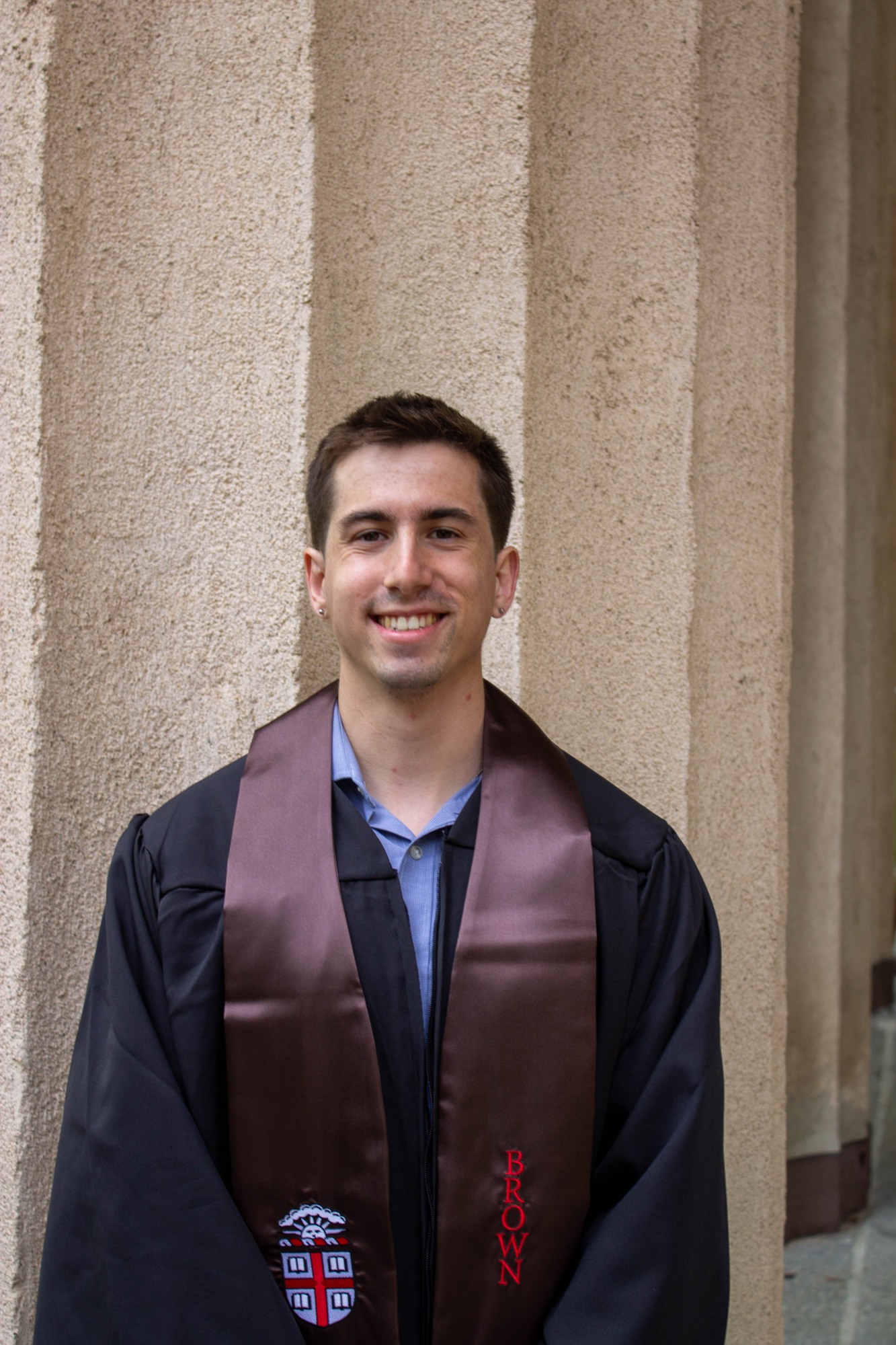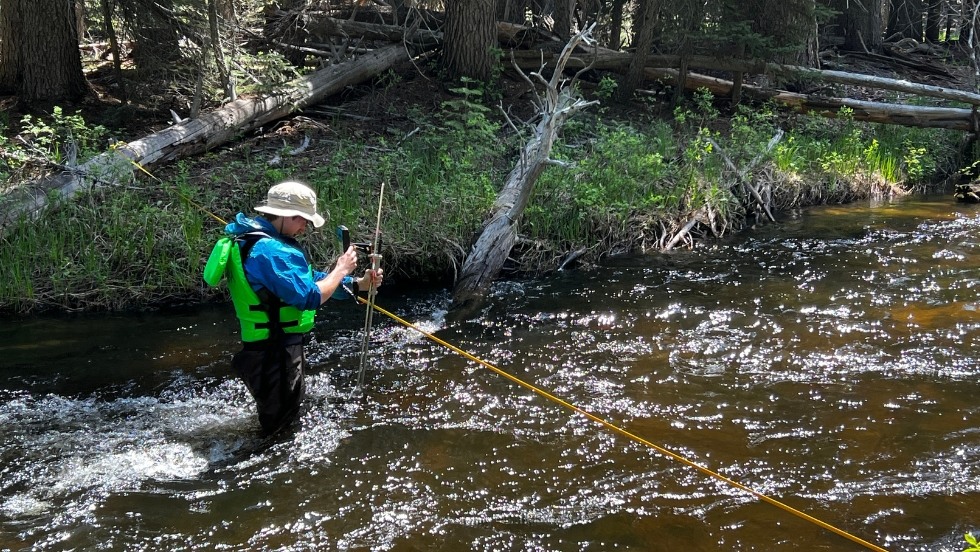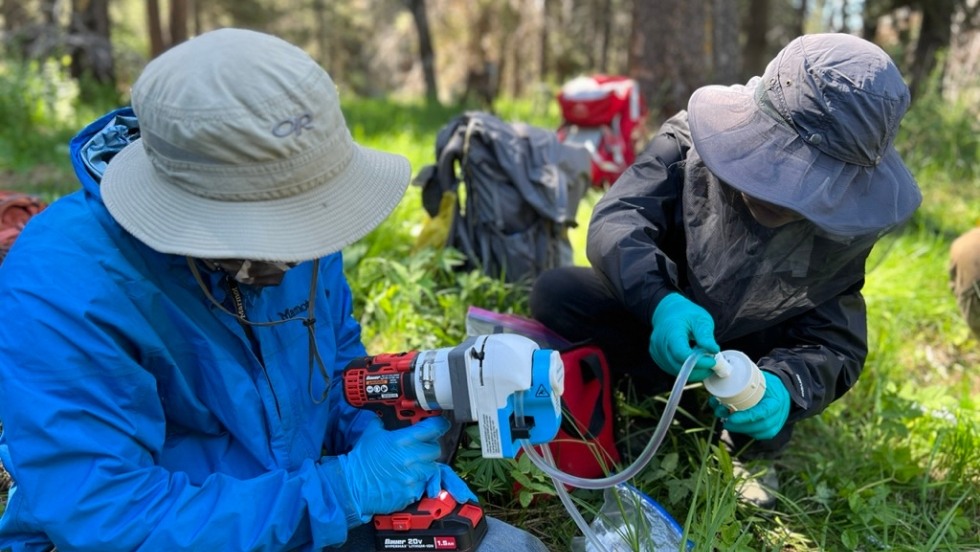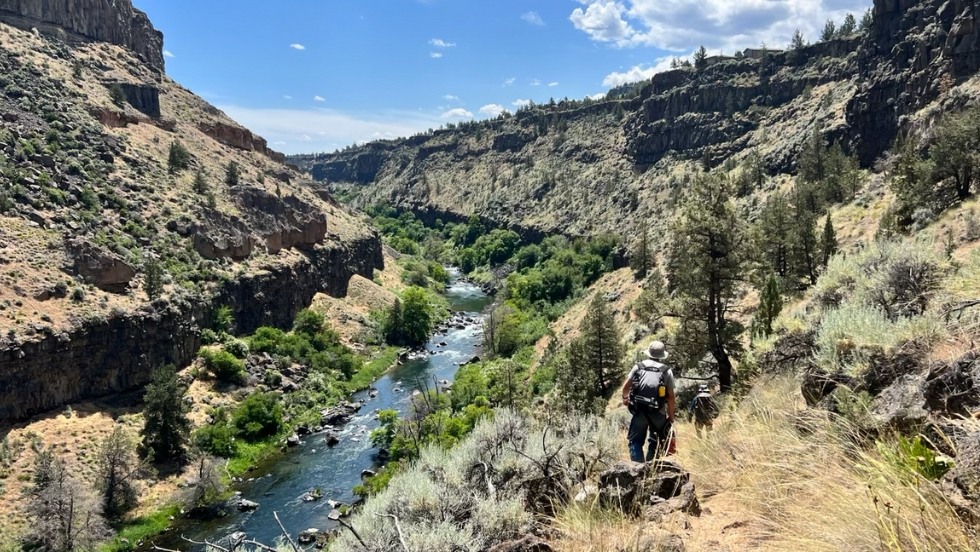 How did you end up choosing your research project?
How did you end up choosing your research project?
I began as an assistant in Tim Herbert’s paleoclimate lab, extracting alkenones from sediment cores to study changes in sea surface temperature over time. That role gave me the confidence and lab experience to approach Dan Ibarra with my own independent project proposal. I had just spent a summer working on a trail crew in partnership with the US Forest Service in Oregon, where I saw the earth science I had studied in the classroom come to life around me.
Working in areas impacted by wildfires generated in me an organic interest in the subject and a resolve to pursue the study of weathering, wildfire, and carbon storage back in the lab at Brown. Ibarra’s lab was already involved with aqueous geochemistry work in Oregon; my personal research investigates how wildfires are influencing the questions they’re already asking about terrestrial biogeochemistry. Ibarra graciously helped me get funding through the IBES Voss Fellowship to return to Oregon and conduct fieldwork and supported me as I ventured down my own research path.
What was your favorite part of your work?
Fieldwork is not only really fun but also sparks a passion and commitment to your project and its outcome that might be harder to find when assisting with someone else's research or analyzing samples you didn’t help collect. Fieldwork motivated me to hold myself to high standards in my work and see the project through, which became especially important when doing the more tedious work of data processing back in the lab. Lab work is challenging—it’s repetitive, requires time and focus, can be menial, can be boring. But when you are dedicated to your project and have the discipline to get the work done, it can also be really rewarding. There’s an adrenaline rush that comes with getting that data back—turning samples into numbers rich with information—and I really enjoy that. I’ve found the research process, from generating a testable question and hypothesis, to coming up with a plan and executing it, to be incredibly fulfilling. Thanks to my work, I can see a future for myself in academia and plan to pursue a PhD.
Why DEEPS?
I was drawn to DEEPS because I love the outdoors and wanted to understand the science behind the natural phenomena I found so fascinating. The field of earth science stands out to me because of its highly interdisciplinary nature. It demands creativity and philosophical thinking; earth researchers are not only scientists but also historians and storytellers. The people in this field are really passionate; it’s a path you don’t choose for money, prestige, or career prospects, but for pure joy and a strong sense of moral obligation, a desire to engage in conservation and climate stewardship that comes from a deep love of the Earth and of humanity.
–––
The Student Research Stories are a new series of interviews showcasing the research journeys of undergraduate students in the Department of Earth, Environmental, and Planetary Science (DEEPS). The series is organized and created by DEEPS Communications Assistants Hania Khan and Isabel Tribe.


